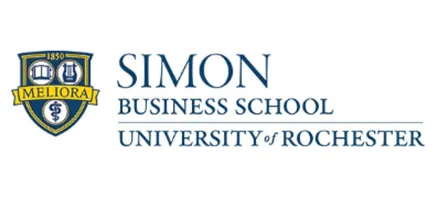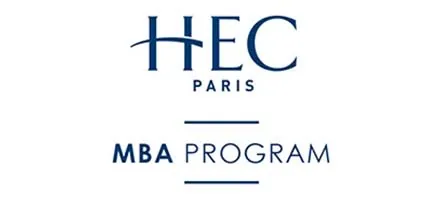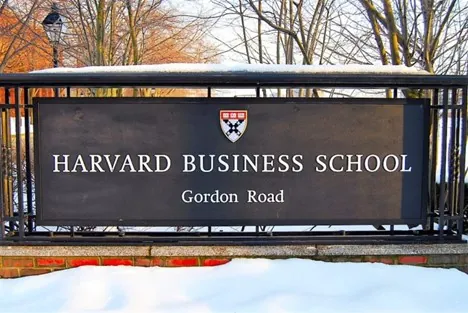
“Test scores provide important data to MBA programs about whether an applicant can handle both the intellectual rigor and the significant coursework of business schools. Studies show that even for ‘test optional’ programs, those applicants who take and submit a test score are more likely to get admitted. Strong test scores correlates with higher admit success overall and often even full ride scholarship offers,” shared Anthony Ritz, Director of Stacy Blackman Consulting’s Test Prep program on B-Schooled Podcast #106.
“Mental state is so important to students; going into a test and feeling comfortable can make a 100-point difference for a test taker,” shared Anthony. So, choosing which test to take is critical in optimizing MBA admit chances. But how do you decide which test you should take, the GMAT or GRE?
Many elite schools have diversified their applicant pool by accepting the GRE as an alternative in the admissions process. Plus, prospective grad students of the arts and sciences have typically submitted GRE scores, so applicants deciding between business school and other graduate programs appreciate having one less test to study and pay for.
One essential difference between the tests is that the GRE requires you to do the arguing, whereas in the GMAT, you analyze what has been argued. The style expected from GRE test readers is more abstract and draws from various sources and disciplines for examples or references, whereas the GMAT is more concrete and analytical. This supports the suitability of the GRE for the more academically-minded student.
Let’s take a look at some common questions SBC clients have had about choosing the GMAT or GRE for their MBA application package. You might find your own situation mirrored in one of these examples.
Q: How do I decide whether to take the GMAT or GRE?
A: The GMAT and GRE are two entirely different tests that don’t remotely resemble one another. Which test to take will depend on the applicant’s profile, college major and coursework, and target MBA programs.
Try a free practice test online for both options to assess which test is best for you. If you do significantly better on one over the other, you probably have your answer.
Discuss with your MBA admissions consultant to validate which test score to submit. There are nuances to the decision, such as your industry profile, target school, and the scoring differential between the tests.
Some schools are more flexible with lower GRE scores. Jenna, a former NYU Admissions Officer on our SBC team, shared: “We did not have to report GRE scores to the ranking agencies, so we were much more willing to ‘dip’ in test scores if the candidate took the GRE instead of the GMAT.”
Curious about which test to take? Contact us for a free 15-minute MBA Advising Session with an SBC Principal Consultant.
Q: Should I take the GMAT or GRE for Harvard?
A: “The majority of applicants historically have favored the GMAT, but HBS has no preference for one over the other,” shared Andrea, a former HBS Admissions Officer who is now an SBC consultant.
Q: I want to take advantage of the fact that some business schools have a test waiver process in place. However, I would still like to take a finance class to boost my chances since I got Cs in a few of my undergraduate finance classes. What is your advice?
A: Not submitting a standardized test score is only beneficial if all other measures, especially the grades, work well. So, if you had stellar grades as an undergrad, the AdCom would probably be okay evaluating you without a test.
But because your grades were low in quant classes, having a GMAT or GRE score to help counteract those grades is essential. Even with A’s in multiple courses, it will be more challenging without another measure (especially at a school like MIT Sloan). Reconsider taking either the GMAT or the GRE, which could do much more to help your chances than taking finance classes.
Curious about which test to take? Contact us for a free 15-minute MBA Advising Session with an SBC Principal Consultant.
Q: How do I interpret the reported GRE averages on the MBA program sites?
A: The reported GRE scores on the MBA program websites don’t entirely reflect any given applicant because they are averages. They reflect only a fraction of the admitted class.
Remember that the reported GRE test score averages are not adjusted by crucial variables such as demographic, function, industry, career path, college caliber, or the extent of quantitative exposure. So, we recommend aiming for low to mid 160s on each section if your goal is top MBA programs.
Here is a sampling of GRE scores from our HBS admits from the past season to demonstrate the range:
| V161, Q167 | V160, Q163 |
| V160, Q159 | V168, Q166 |
| V166, Q170 | V170, Q170 |
| V169, Q164 | V165, Q165 |
Q: I just got out of the GRE. I got a 160 verbal and 159 quant. This translates to a 630 GMAT score. I should tell you I have taken the GMAT a few times. My highest score has been 640, and my lowest and most recent score has been 580. Which test should I submit?
A: When in doubt, we will usually recommend submitting the highest score, especially if the differential between the GRE and GMAT score is significant and if there’s enough quantitative exposure through college and career.
Q: I took both the GRE and GMAT practice tests but did better on the GRE. Which should I submit?
A: We have had exceptionally quant-proficient clients who bombed the GMAT multiple times (e.g., one client took it four times and couldn’t break a 650) but then switched to the GRE and absolutely killed it.
The client who took it four times scored a 720 GMAT equivalent when converted. This client reported both sets of scores and got into the programs they had hoped for.
Look at the quantitative percentiles on both tests, the difference between your scores, and the extent of quantitative coursework from college before determining which test to submit. There are scenarios where we may recommend submitting the weaker test score because of the quantitative percentage.
Q: While they may accept both the GRE and GMAT, do admissions committees have a preference or bias for one over the other?
A: We surveyed the former MBA Admissions Officers on our SBC team, and here’s their advice.
Former Anderson AdCom: “The GRE is fine if the quant percentage is high enough, ideally over 80%.”
Former Booth AdCom: “If you haven’t taken either, take the GMAT. But if you’ve already taken the GRE and are happy with your score, don’t take the GMAT just to take it.”
Former CBS AdCom: “We used the conversion tool online to see what the GRE would equal to GMAT. They really don’t care which one because they can see what the GMAT equivalent was.”
Former INSEAD AdCom: “INSEAD will focus on the % breakdown in verbal vs. quantitative. The ratings are assigned to scores based on a 1-5 scale, so 5 = 90%+, 4 = 80%+, 3 = 70%+, 2 = 60% +, 1 = 50%+. This is true for both the GMAT and the GRE. Aim for 70%+, ideally 80%+, to demonstrate that the prospective student can cope with the program’s rigor.”
Former Kellogg AdCom: “Submit GRE if a great all-round candidate and GMAT is the weak-spot.”
Former Stanford AdCom: “Submit the score that substantiates that you can do the work.”
Former Stern AdCom: “Stern is so super sensitive about test scores and doing well on the GRE/GMAT matters. We converted the GRE to the GMAT using the online conversion tool. Q was more important than V. We rarely cared about IR or AWA unless it was really low.”
Curious about which test to take? Contact us for a free 15-minute MBA Advising Session with an SBC Principal Consultant.
Q: Which MBA applicants should favor the GMAT over the GRE?
A: The majority opt to submit a GMAT score for typical top MBA applicant profiles, such as those from the traditional fields of finance or consulting. The same is true for over-represented applicants, such as engineers.
We recommend trying the GMAT first if you come from a traditional or over-represented career path/ demographic. The GRE is accepted but can be perceived as easier quantitatively than the GMAT. If you score high enough on the GMAT as a traditional industry applicant, that should be your plan A.
If the GMAT score is below average for a target MBA program and you’re a traditional industry applicant from a common demographic pool, it would be wise to pivot to the GRE.
Q: Which MBA applicants should favor the GRE over the GMAT?
A: For anyone struggling with the math side of the GMAT, we recommend shifting to the GRE. That may give the applicant an edge, as the quantitative section of the GRE is easier than the GMAT quant section. If applicants are nervous about their quantitative performance, they will likely perform better on the GRE.
We have seen that the GRE could be a valuable differentiator and smart strategic decision for an MBA candidacy. MBA programs began accepting this exam to attract a broader, more diverse set of applicants. Because the GRE is accepted at many graduate programs, incorporating the test into an application strategy often bolsters positioning, especially for non-traditional applicants.
Hear more about how the GRE can help MBA admission chances from Stacy Blackman Consulting principal Esther Magna:
Those who submit GRE scores may highlight strengths outside the more common business skill set. When developing a full strategy, choosing the GRE can be another way to highlight a unique path.
OUR LATEST INTEL FOR GMAT FOCUS EDITION TEST PREP:
GMAT Focus Edition: Structure, Differences, and Test Strategy for MBA Applicants
GMAT Focus Edition: Percentiles, Comparison, and Concordance
Curious about which test to take? Contact us for a free 15-minute MBA Advising Session with an SBC Principal Consultant.
Stacy Blackman Consulting’s Podcast, B-Schooled, is hosted by Erika Olson, Harvard MBA and Chandler Arnold, Stanford GSB MBA. B-Schooled now has more than a quarter million downloads and 200+ episodes. Search and sort through our 200 B-Schooled podcasts.
Stacy Blackman is the founder of Stacy Blackman Consulting (SBC). We are the only consulting firm in the industry that has a complete panel of former MBA Admissions Officers from the top US and European MBA programs. SBC holds the #1 ranking on MBAinsight, CollegeConsensus, ClearAdmit, BeattheGMAT, ExamStrategist and we are #1 out of 11 firms for the presence on our SBC team of former MBA Admissions Officers by Poets&Quants. Sign up for SBC’s E-Newsletter for valuable insider intel culled from the former MBA Admissions Officers on our team and real-time learnings: stacyblackman.com/newsletter Request a free MBA Advising Session call: stacyblackman.com.


















